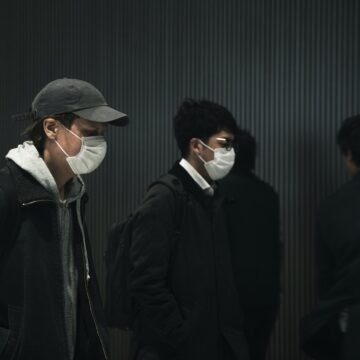
- “Walking pneumonia” is a type of pneumonia often caused by bacteria.
- You can get walking pneumonia more than once.
- No vaccine can prevent walking pneumonia.
Just Like a Cold
Walking pneumonia or atypical pneumonia is a mild case of pneumonia. It’s often caused by a lung infection from chemicals, bacteria, viruses, fungi, or inhaled food. The Mycoplasma pneumonia bacteria often cause it.
You may not need to stay in bed if you have walking pneumonia, and you might even feel good enough to keep up with your normal routine. Some people with walking pneumonia don’t even know they have it.
Who Gets It?

Walking pneumonia is common in children, military recruits, and adults below 40 years old but can affect anyone. Those who stay in crowded places are at higher risk of contracting the Mycoplasma pneumoniae bacteria. While infections can happen year-round, they’re more common during late summer and fall.
Is It Contagious?

The bacteria that causes walking pneumonia can spread slowly through sneezes or coughs. The incubation period is up to 10 days. According to researchers, close contact with an infected person can cause a healthy person to catch walking pneumonia. However, widespread outbreaks can occur every 4 to 8 years.
Symptoms

Symptoms usually appear 15 to 25 days after exposure to mycoplasma and slowly worsen over 2 to 4 days. Symptoms include:
- Chest pain when you inhale deeply
- A cough in violent spasms
- Fever and chills
- Sore throat
- Headache
- Tiredness
- Fatigue
Some uncommon symptoms may include skin rash, ear infection, or anemia. Seek medical help if you have a new cough, fever, or shortness of breath to rule out COVID-19.
Treatment

Over-the-counter meds for cold and flu may not treat walking pneumonia. In this case, an antibiotic may help make you feel better within a few days. It would also help to stay hydrated and get sufficient rest.
It’s possible to catch walking pneumonia more than once. But if you get it the second time, it may be milder than the first.
Prevention

To date, there’s no vaccine to prevent mycoplasma infection. However, you can take these simple steps to minimize your chances of catching it:
- Exercise.
- Eat a healthy and balanced diet.
- Get enough sleep to boost your immunity.
- Wash your hands often to prevent germs from spreading.
- Don’t smoke to keep your lungs healthy.
- Cover your mouth using your sleeve or a tissue when you sneeze or cough, and ask others to do the same.
Source: WebMD
